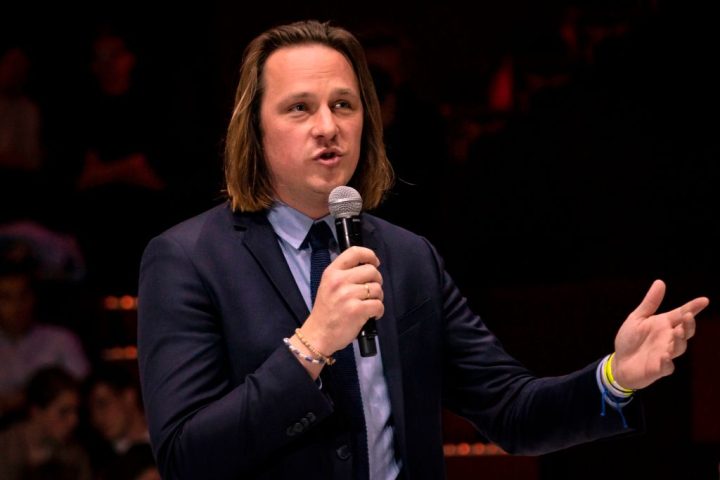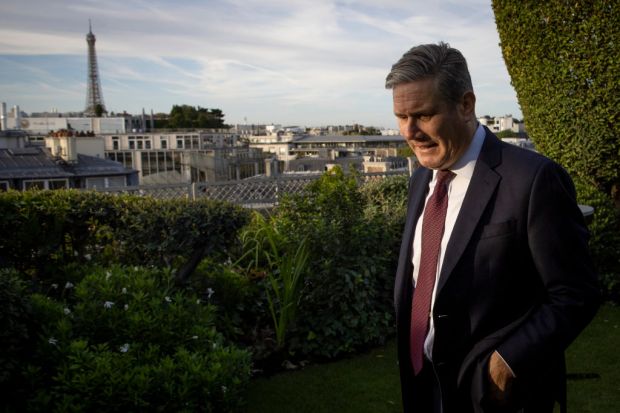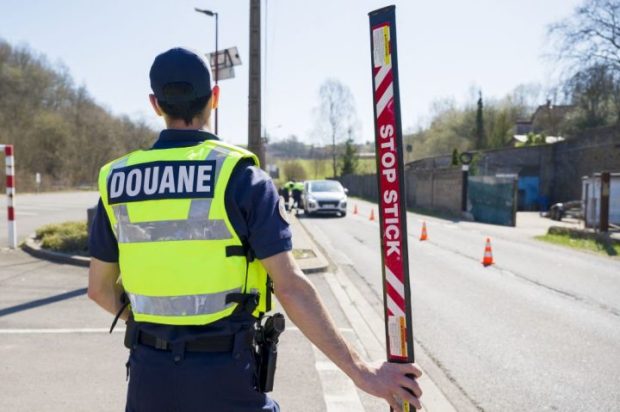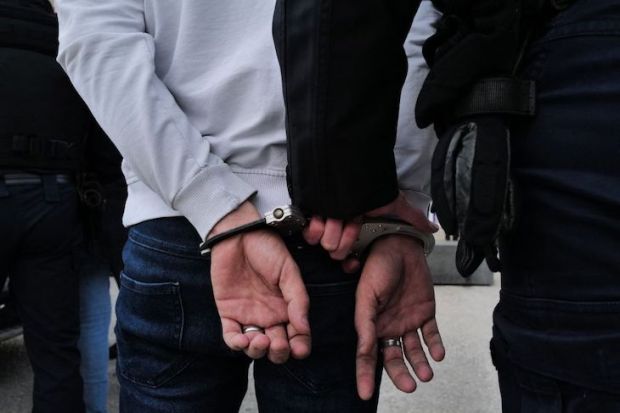Geoffroy Lejeune knows how Nigel Farage feels. Like the former Ukip leader turned TV host, Lejeune’s ‘values’ have made him persona non grata among France’s progressive elite. The 34-year-old journalist was last month appointed editor-in-chief of Journal du Dimanche (JDD), France’s only dedicated Sunday newspaper with a circulation of 140,000.
Newspaper staff were outraged. They downed tools, and have been striking now for five weeks. The papers’ journalists remain ‘more determined than ever’, they say, to continue their industrial action.
The real danger to democracy aren’t the likes of Lejeune or Farage, whatever their opinions may be
The problem is Lejeune’s politics. He is described as ‘far right’, and counts among his friends Marion Marechal. The niece of Marine Le Pen, she resigned as a National Front MP, as it then was, to set up a private university, before re-launching her political career as vice-president of Eric Zemmour’s Reconquest party. Lejeune threw his weight behind Zemmour in last year’s presidential election, endorsing the right-wing candidate via his editorship of Valeurs Actuelles.
Valeurs Actuelles has long been the bête noire of progressives in France: a weekly magazine that is a favourite among Catholics, retired military men and the Gallic equivalent of ‘outraged from Tunbridge Wells’. It was Valeurs Actuelles which, in 2021, published the open letter from a collection of ex-army officers warning that the country was sliding inexorably towards civil war.
Routinely described by its detractors as ‘far right’ – a term that these days is applied to anyone and anything that deviates from the progressives’ party line – the magazine is best described as the bible for the socially conservative. In 2019, Emmanuel Macron gave an interview to Valeurs Actuelles, justifying his decision by declaring that ‘it’s a very good publication, you have to read it to understand what the right thinks’. There was the predictable uproar from the bien pensants of Paris, who accused Macron of legitimatising the far right by airing his thoughts to the magazine over 12 pages.
The announcement that Lejeune would take over the editorship of JDD was certainly a surprise, given its reputation for bland centrism. But rather than wait and see what editorial changes he intended to implement, the staff walked out.
According to the paper’s journalists’ association, ’98 per cent of the newsroom are against and refuse to work’ with Lejeune, who is scheduled to take up his post on 1 August. The journalists’ strike is the longest of its kind in the media since a 28-month strike by the Le Parisien newspaper in the mid-1970s.
The industrial action is supported by Reporters Without Borders, which describes itself as an independent NGO that ‘works to defend press freedom’. It has called the appointment of Lejeune an ‘attack on journalistic values’. Christophe Deloire, the group’s secretary general praised ‘the determination and courage of the journalists of the JDD who refuse to be eaten alive’.
The hostility of the journalists, and the Paris progressive elite more broadly, is directed as much towards Lejeune’s new boss as at him. The JDD is part of the Lagardère group, which is in the process of being bought by Vincent Bolloré, described by one broadcaster as a ‘conservative Catholic’. He is also a billionaire. In recent years, Bolloré has acquired CNews (similar in editorial tone to GB News) and Europe 1, whose closest British equivalent is probably TalkRadio.
Both are routinely described as far right, an accusation that overlooks the origin of some of the broadcaster’s most talented presenters, such as Sonia Mabrouk and Christine Kelly, who was born in Guadeloupe. Mabrouk, who is of Tunisian descent, is an excellent interviewer whatever her guests’ political views, but, to some on the left, she is condemned because of her criticism of political Islam and American-style ‘identity politics’.
When Bolloré bought CNews and Europe 1 there were strikes, resignations and hand-wringing editorials in left-wing newspapers about the ‘threat to democracy’ posed by the new owner. Earlier this month Pap Ndiaye, in his capacity as education minister, endorsed this view, expressing his ‘concern’ at the influence of Bolloré in the French media and labelling CNews and Europe 1 as ‘clearly far right’.
This drew an indignant response from opposition MPs as well as the broadcasters’ journalists. CNews presenter Laurence Ferrari mocked Ndiaye for giving ‘lessons in democracy from his plush Paris salon, where state schools are good for others but not for his children’. (Shortly after Ndiaye was unveiled as education minister last year, it was revealed that he sends his children to one of Paris’s most elite private schools.)
Last week, Ndiaye was removed from his post in a government shuffle. Ostensibly it was because he was a very poor minister, but Emmanuel Macron would have noted his juvenile comments about parts of the French media.
Recently the president rebuked his prime minister, Elisabeth Borne, after she called Marine Le Pen’s National Rally party the ‘heir to Pétain’. Labelling the 13.2 million who voted for Le Pen in last year’s presidential election as ‘fascists’ was stupid, said Macron. Such tactics might have worked 30 years ago ‘but the fight against the far right no longer involves moral arguments’.
This reality has escaped the staff of the JDD who, just as Coutts did with Farage, ignore the fact that millions of people share the ‘values’ of Geoffroy Lejeune. In the narrow minds of these journalists, such values are immoral and the people who hold them should be ostracised.
The real danger to democracy aren’t the likes of Lejeune or Farage, whatever their opinions may be on Net Zero or mass immigration; rather it is the arrogance and intolerance of bankers, journalists and politicians who seek to silence those who don’t subscribe to the progressive world view.
Got something to add? Join the discussion and comment below.
Get 10 issues for just $10
Subscribe to The Spectator Australia today for the next 10 magazine issues, plus full online access, for just $10.





















Comments
Don't miss out
Join the conversation with other Spectator Australia readers. Subscribe to leave a comment.
SUBSCRIBEAlready a subscriber? Log in